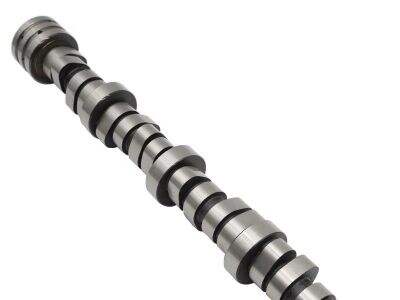Normal Issues of the Piston and Their Symptoms
Cutting on a piston results when there are lines or scratches on the face of the piston. This may be due to a low level of lubrication, dirty oil or overheating. is if you can see scoring on the face of a piston, then by all means go. You might also experience a decrease in engine system power or hear strange sounds emitted by the engine, which can indicate an issue with the piston.
Piston Seizure is another frequent piston issue that happens which the piston basically gets stuck inside the cylinder. This is possible to happen because of overheating, improper lubrication, or contaminants entering the cylinder. One way to determine if there is a seizing piston is through the difficulty of starting, or with sudden engine shutdown. In other scenarios, you will also view a decent black smoke billow out of the engine which means something has gone really bad with the piston.
Tips for Wholesale Buyers
If you're a wholesale buyer searching for pistons to make new equipment, it's crucial to acquire pistons from trusted suppliers, because you want the best quality for your pistons. When you are shopping for pistons, it is important that they fit your equipment so be sure to consider the requirements of your engine before choosing any given pistons. And remember to service them as well, if you want your pistons to last longer. For wholesale purchasers, the following are also recommended: A regular program for maintaining your equipment to avoid common piston issues. That means frequent oil changes, pulling the pistons for damage checks and plenty of lube. If you properly maintain your machinery, you will be able to prevent expensive repairs and downtime from piston problems.
Knowing about common piston issues like scoring and seizing is vital to keeping your machine running smoothly. By adhering to the advice below, large scale purchasers can ensure that these problems don’t affect them and keep their machinery up and running for many years to come. After all, maintenance and care are essential to preventing piston problems and adding life to your equipment.
Preventing Piston Seize-UP on Your Equipment
One of the common issues in machineries is piston seizing, that stops running of machine in a proper condition. One of the best methods to keep this problem at bay is by greasing up your machinery. Lubrication will lower the friction between the piston and cylinder walls to prevent sticking. Be certain to use the specific type of oil or lubricant that is suggested by your machinery manufacturer.
TLC is another preventative for piston freezing. Inspect your equipment on a regular basis to detect wear and tear, then replace worn OEM Auto Parts before they contribute to larger issues. Taking care of your machinery and keeping it free from dirt and debris can also reduce the risk of piston seizing, because when there is a buildup of dirt and dust in the equipment, they can cause friction which leads to damage.
Last but not least, working your equipment within the proper temperature range can also avoid piston seize. The change in temperature might result in the piston expanding or contracting and hence affect the movement. Be sure to follow the manufacturer’s instructions for operation of your equipment under the correct conditions in order to prevent piston seizure.
A look at common problems in industrial machinery Pistons
There are some usual piston problems that can come up in industrial machinery. The first of these issues is piston scoring, that arises when the walls of the piston get damaged or scratched. This can be caused by insufficient lubrication, dirty oil or excessive friction between the piston and cylinder walls. Piston seizure is another frequent piston issue, which we have discussed above. This happens when the piston gets stuck inside of the cylinder so the piston can’t move. Seizures can be the result of insufficient lubrication, overheating, or debris entering the cylinder.
Piston Scoring – What causes it and How do you fix it?
Piston Scoring Piston scoring can have a few different causes, such as dirty oil, poor lubrication and excessive friction. Before we can treat piston scoring, it is a must that we determine what caused the failure. If scoring is caused by dirty oil, change the oil and filter often to avoid damaging of the piston walls. Avoiding piston scoring requires good lubrication, so using a proper oil or lube recommended by the Auto Parts Manufacturer is important. Should scoring be severe, it will become necessary to replace the piston or cylinder walls in order for your equipment to continue operating efficiently. Routine machinery maintenance and inspection can catch piston scoring early and avert potential damage.

